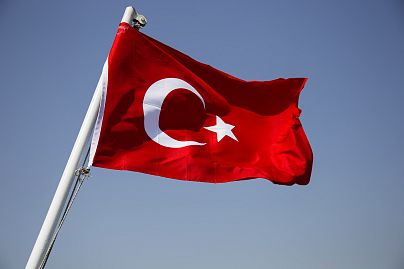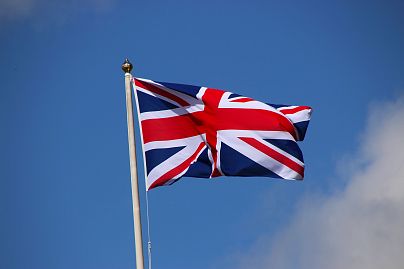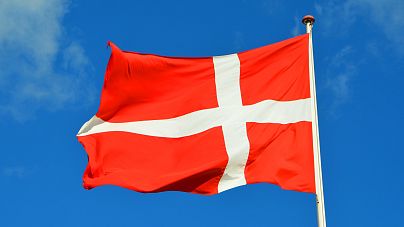As the perceived exploitation of child benefits by foreigners is a hot topic in Germany, we break down how easily parents from abroad can claim in other countries.
The number of parents living in Germany and claiming child benefits for children residing elsewhere has increased by 10% in the last six months, according to government figures reported by news agency dpa last week.
Child benefits were paid for 268,336 children living outside the country in the European Union or in the European Economic Area in June 2018, a Finance Ministry spokesperson told dpa, costing the government €600 million per year.
This issue was a hot talking point in Germany with several mayors of towns home to large immigrant communities claiming people were coming to the country specifically for the social benefits because of the system.
What child benefits are available to parents in Germany and other countries and can people moving from abroad claim them upon arrival?
Germany
The German state pays €194 Euros a month per firstborn and secondborn child, with the figure going up to €200 for a third child and €225 for the fourth.
This is regardless of the household income, the only condition is for a parent's permanent place of residence to be in Germany.
Turkey
In Turkey, parents recieve a single payment for the birth of each child — for the first they are given 300 Turkish lira (€45.21), the second child 400 (€60.28) and any subsequent children 600 (€90.43). They also receive 122 lira every month.
To be eligible for child benefits, one of the parents must have worked for at least four months.
Turks who live in Germany and hold a 'blue card' issued by the Turkish government are also eligible to receive child assistance.
Either the mother or father of a child must hold a Turkish nationality to receive any child benefit.
UK
The UK has a flat-rate weekly payment given to all parents for their firstborn child, which stands at £20.70 a week (€23.16) in 2018.
They recieve this until the child is 16 (or under 20 if they stay full-time education or training), with any additional children seeing parents entitled to £13.70 a week (€15.33).
It is possible for parents from the European Economic Area to recieve these payments when their child is not living with them, provided some conditions are met.
One parent must have paid national insurance (tax taken directly from the salary) and if they arrived in the UK without a job after July 1, 2014, they must work for three months before receiving child benefits.
Ireland
The UK's neighbour has a similar non-means-tested system — a fixed rate of €140 per month is available for each child until they are 16 or 18 if they stay in full-time education, training or have a disability and cannot support themselves.
To recieve the money parents or guardians must satisfy "Habitual Residence Conditions", which consider factors like their right to reside and the length of time they have been in the country.
Denmark
Financial aid in Denmark is based on the age of the child, decreasing as they get older, stopping when they are 17. The payments range from 4,506 kroner (€605) per quarter to 2,808 kroner per quarter (€377).
Benefits are dependent on the income of the recipients and if the parents make more than 765,800 kroner per year (€102,730), the size of the benefits are reduced.
In 2017, Denmark tightened the rules for EU citizens wanting to claim child benefits, now requiring parents to have worked for six years to receive the full payment, whereas before it was two years.
France
Parents in France get monthly child benefits that are not means tested, which start with their second infant. They receive €131.16 when they have two offspring, €299.20 for three and an additional €168.04 for each subsequent child.
One-off payments upon the birth (€941.68) or adoption (€1,883.36) of a child are given to parents, both of which are means tested.
Extra support is available, some of which is means tested, like the Family Income Supplement (€170.71-€256.09 per month), other benefits are not, such as the Family Support Allowance (€115.30-€153.70). Additional forms of finance are also possible.
CLEISS (Center for European and International Social Security Liaisons in France) told Euronews that both parent and child must be residing in the country to recieve family benefits and the parents must prove permanent residency in France.
Spain
A grant is received in a single payment when a baby is born and calculated on the basis of the minimum monthly wage for that year, which in 2018 was €735.90.
The grant is also based on the number of children in the family — for two children the payment is four times the minimum wage, for three children it is eight times and for four or more children it is 12 times.
To recieve this payment one parent must be a permanent resident in Spain and have his or her habitual residence in the country, so foreigners can be eligible.
Russia
Russian parents recieve a payment called "Maternal Capital" of around 453,000 roubles (€5,850), which can be altered depending on income and also the location of the family.
This assistance is purpose-based and can be spent on education, babysitting, nursery or improving living conditions.
Means-tested, monthly grants, depending on the region where the family lives, are also available. In Moscow, the payments range from €20 to €200.
Foreigners don't have the right to Maternal Capital, but if they have state health insurance they can recieve some income-based benefits when a child is born.
Ukraine
Parents in Ukraine recieve €1,300 for each child, with payments stretched out over three years, divided into different amounts depending on the year.
Other benefits that depend on circumstance are available, such as those for single mothers with low income.
Parents can receive the payments if they were ever registered as an employee or an employer.
EU law
EU law stipulates child benefits are taken over by the country of residence that an EU citizen is living or working in, regardless of their nationality.









